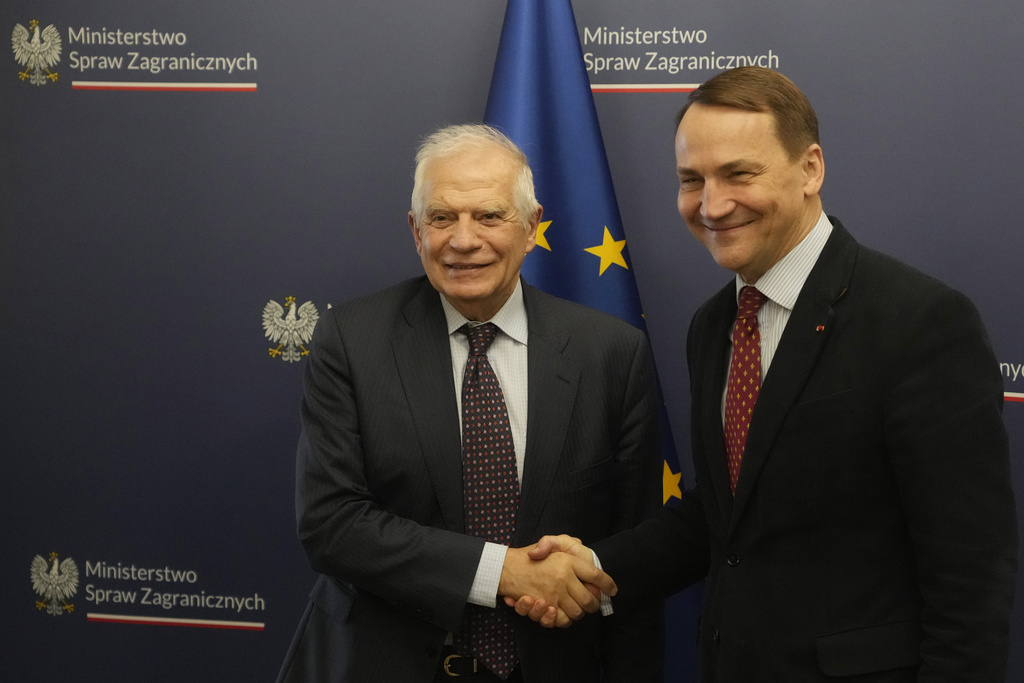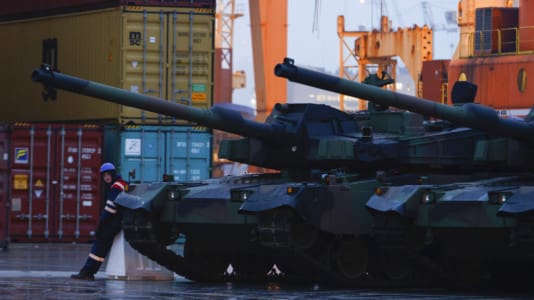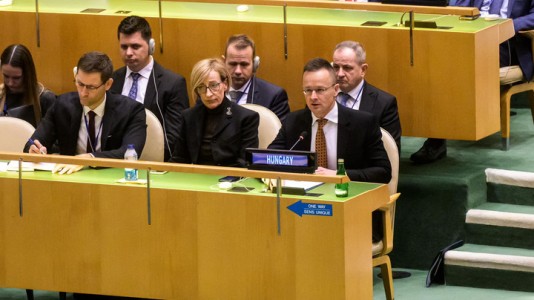Poland is undergoing a critical shift in its foreign policy, moving its focus from Washington to Berlin and Paris in response to the U.S. Congress’ ongoing refusal to deliver aid to Ukraine. The move by Republican politicians threatens the stability of the Ukrainian front, potentially leading to its collapse within the year. Officials in Warsaw fear that such a victory for Putin could mark NATO as his next target.
Poland’s Rzeczpospolita paper reports that Poland’s solution lies in engaging more deeply in the development of a European defense policy.
This strategic redirection comes amid assessments within Polish leadership circles that Washington is preparing for a final showdown with China for global hegemony, diminishing its interest in Europe regardless of the U.S. election outcomes. Thus, Polish Foreign Minister Radosław Sikorski is enthusiastically supporting Brussels’ initiative to create a €100 billion fund for the development of arms production within the EU.
His discussions in Berlin with Wolfgang Schmidt, head of the German Chancellor’s Office, focused primarily on coordinating policies towards Ukraine. France, Germany and Poland agree on the necessity of supporting Ukraine until a victory defined by Kyiv itself is achieved, leading to efforts to overcome Hungarian Prime Minister Viktor Orbán’s resistance to funding Ukraine.
The current German and French administrations also express concern over the rising popularity of right-right populists, fueling anti-Ukrainian sentiments. As a result, Emmanuel Macron and Olaf Scholz are prepared to treat Poland as an equal partner within the Weimar Triangle for the first time.
However, Poland must navigate “difficult topics,” such as demands for reparations from Germany and consider deep reforms to the EU Council, including limiting veto powers in foreign and defense matters. France, in return, anticipates securing contracts for building a new nuclear power plant and arms purchases over U.S. competitors.
British political scientist and director of the European Council on Foreign Relations, Mark Leonard, insists on Poland’s necessity to invest in European defense policy. He argues that America’s declining willingness to bear the costs of European security and its focus on China as a primary adversary necessitates this shift.
Sikorski’s upcoming visit to France for the Weimar Triangle foreign ministers’ meeting highlights the importance of EU defense policy as Poland’s “third insurance policy,” alongside the Polish military and NATO cooperation. Sikorski aims to advocate for a compromise on increasing the European defense budget, positioning Poland as a mediator between Germany and France’s differing stances.
Sikorski warns of a dire situation where a lack of ammunition and the disparity in firepower between Ukraine and Russia forces Ukrainians to ration artillery and missiles. The €50 billion recently approved by the EU for Ukraine’s support and reconstruction may not suffice without American aid.
Facing a scenario where the U.S. Congress fails to pass a support package for Ukraine, Poland and Europe must decide whether to double their support to replace U.S. contributions or allow Putin to conquer Ukraine. Sikorski stressed the importance of Ukraine winning the war to prevent Putin from utilizing its industrial and human resources for further aggression.





